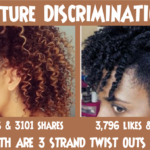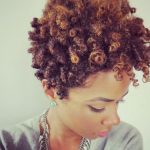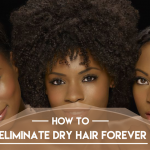 Do you pull your hair out? Well if you are thinking that you might have a problem you just might. There is a medical term for hair pulling known as trichotillomania and research into the causes and how the disorder is treated is still in the early stages.
Do you pull your hair out? Well if you are thinking that you might have a problem you just might. There is a medical term for hair pulling known as trichotillomania and research into the causes and how the disorder is treated is still in the early stages.
According to some research trichotillomania is a neuro-biological disorder common to many individuals. Though research is limited it is believed that genetics might be one reason you pull out your hair.
If you are unsure about what we mean by hair pulling, let me explain. Hair pulling is just that, yanking out every strand of hair on your head for comfort or pleasure or based on some sort of emotional state.
Some of us including my self do have sort of a ‘happy’ sensation when we find a knot or a lint ball and we are able to get it out.
If you are like me, you will not stop or give up nudging at your hair until the knot is removed once you find it. For me I know that it does not matter what circumstance I am in or what might be going on because the knot will literally ‘bug’ me until it is gone.
With that said just as I am* not sure if my insatiable need to remove knots is a part of the body of trich research and I am definitely not in the business of self diagnosis especially since the causes are not yet ironed out.
Why would a person pull their hair out?
Because research is so limited we only have a few answers to that question. One I mentioned which is that it is a way to self soothe.
Typically a person with TTM will do it at home or wherever they are most comfortable because it is soothing. According to Trich.org:
While the underlying biology is not clearly understood at this time, we do know that people with trichotillomania generally have a neurologically based predisposition to pull their hair as a self-soothing mechanism. The pulling behavior serves as a coping mechanism for anxiety and other difficult emotions.
If you pull your hair out when you are stressed or even anxious you could be suffering from trich but you will not know for sure unless you see a professional. Know that trich can start as early as the first year of life but the average age that is recorded for the onset of the disorder is age 11.














Hmm. Does it apply to facial hair as well?
it does actually, facial chest.. any hair on your body
I honestly didn’t know this was a thing but I’ve plucked gaps in my lashes and brows before.
I have had trichotillomania for 6 years. It started in my teen years, and it went away I was finally graduated and stopped having to go to high school. When it got bad, I would have to conceal the bold spots with black eyeliner. When it grew back, I would have to try and blend it as much as possible with my natural hair. All styles would always come out wrong, because the hair on the top of my head was always so much shorter. I notice it takes a specific mix of feeling stressed, frustrated and powerless for it to trigger the pulling… At least for me. When I get very stressed sometimes I still do, but not nearly as bad.
I am very pleased that we’re starting to talk about it in the natural hair community.
Finally Got My Answer
I know someone that pulled every inch of there hair out
Yes I have pulled out every eye lash
Have had it since middle school
Katy my mum.. wish this article was in persian
My daughter is 11 and has Trichotillomania. Whats the best hairstyle for het. Even when i cut it short she stills pull it.
Protective hairstyles might work but really dealing with the condition head on would be the best course of action.
I have suffered from trichotillomania since I was 14. I never spoke on it because I was embarrassed and also fear of judgement. I was diagnosed with ptsd, anxiety, and general depression. I too keep my hair cut or protective hair styles to keep from pulling but it doesn’t work. It’s extremely hard to speak with a professional due to limited research on this disorder. Please HELP!!!
There is limited research but help is always available. Try https://www.bfrb.org which is an organisation that helps individuals with trichotillomania and other skin picking disorders deal with their condition including finding therapists that specialize in it.